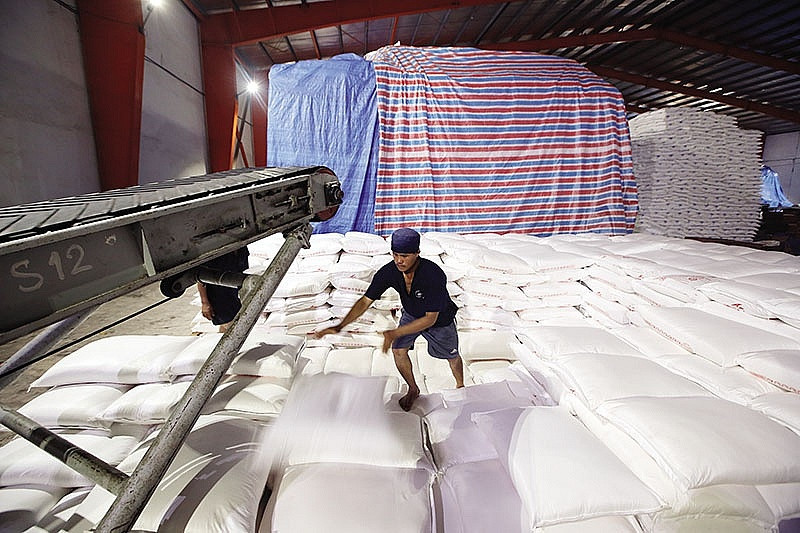 |
Soc Trang Sugar Corporation (SOSUCO) is worried about preparing sugarcane for the 2022-2023 season after several agreements fell through this season.
According to general director Tran Ngoc Hieu, SOSUCO signed agreements with households in the Mekong Delta province of Soc Trang to collect sugarcane for 2021-2022, covering an area of nearly 2,000 hectares. The agreement regulated that the farmers had to commit to selling their entire sugarcane output to the company.
“But when other traders came calling and offered higher prices, the households broke the agreement,” Hieu said.
The company offered purchase prices for the 2021-2022 crop at VND1.1 million ($48) per tonne of clean sugarcane. The company was also in charge of paying fees for gathering sugarcane from fields and transporting it to the factory.
The VSSA has asked the General Department of Vietnam Customs to keep a closer watch on the sugar trade and clamp down on smuggling.
In addition, if the households complied with the agreement, the company would pay additional support of around $1.30-2.15 per tonne of clean sugarcane.
But this was not enough to stop the farmers from selling to other traders, who mostly wanted to resell to sugar factories in nearby Tay Ninh province.
“These traders would come and buy an average of 500-600 tonnes of sugarcane daily from the households, breaking the agreements signed with the company,” Hieu said. “It was a difficult time because the company did not have enough material to maintain operations, and simultaneously we suffered damage due to failure to recoup the investment capital for the area.”
A similar situation occurred in many other sugarcane factories, such as the An Khe factory in the Central Highlands province of Gia Lai.
The company invested $8.69 million to develop its material area, including combining with households. However, in the 2021-2022 season, many traders bought sugarcane from households for factories in Kon Tum, Ayun Pa, and Phu Yen.
Vietcombank Securities statistics show the sugar demand in the domestic market is approximately two million tonnes per year. The raw cane area supply just meets one-third of the domestic production demand, while the rest must be imported.
The total raw material area in the 2020-2021 season decreased by 16.27 per cent compared to the previous season. As a result, sugarcane factories across the country collected just 6.74 million tonnes of material, lower than the initial expectation of 7.49 million, the lowest sugarcane production reported in the last 20 years.
According to the Vietnam Sugarcane and Sugar Association (VSSA), only 25 sugar factories are still operating, and around 15 recently shut down. In some localities this year, people have even left sugarcane farming altogether or have not farmed as efficiently as before, leading to a decrease in yield and quality.
Bui Ngoc Truc Anh, head of communications of Thanh Thanh Cong – Bien Hoa JSC (TTC Sugar), told VIR, “It is a sure thing that sugarcane producers want to build the domestic area to be proactive. However, the domestic supply source is extremely scarce and demand is high, so they are forced to increase import products to meet market demand.”
To deal with the shortage of material, TTC Sugar had to expand the sugarcane plantation area and simultaneously increase cooperation with farmers.
“The company wants to develop the material area overseas, such as in Laos, Cambodia, India, and Australia,” Anh said.
TTC Sugar is currently the largest sugar producer in Vietnam, with a market share of 46 per cent. The company’s material areas in Vietnam, Laos, and Cambodia cover an area of 66,000ha, and the company plans to expand areas in Laos and Australia to 20,000ha each by 2025.
Along with the difficulties relating to material shortage, sugarcane producers also suffer pressure from Thai sugar dumping, smuggling, and trade fraud.
In July, the VSSA submitted a document to report on the damage caused by smuggled sugar. During the past year, the volume of sugar exported to Vietnam from Laos increased 60-fold since the country imposed an anti-dumping tax on Thai sugar in June last year.
Sugar groups evaded tax by transferring sugar from Thailand to ASEAN countries such as Laos, Cambodia, Indonesia, Malaysia, and Myanmar.
“As a result, among the 25 factories in operation, 17 are suffering losses. Over 3,300 people have lost their jobs, and more than 100,000 households had to cultivate other crops,” the document said.
Source: VIR